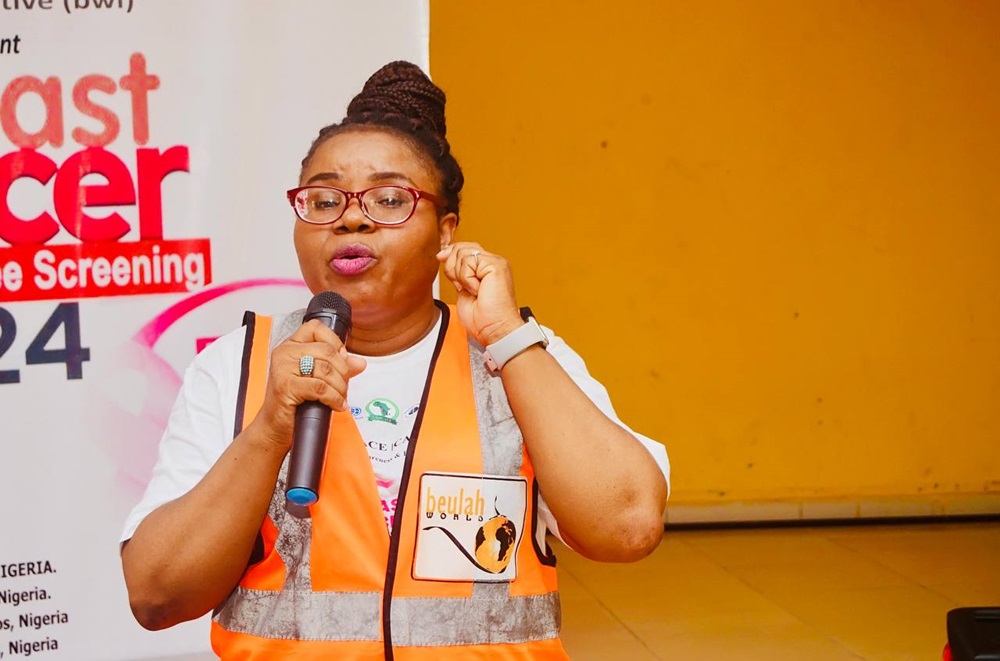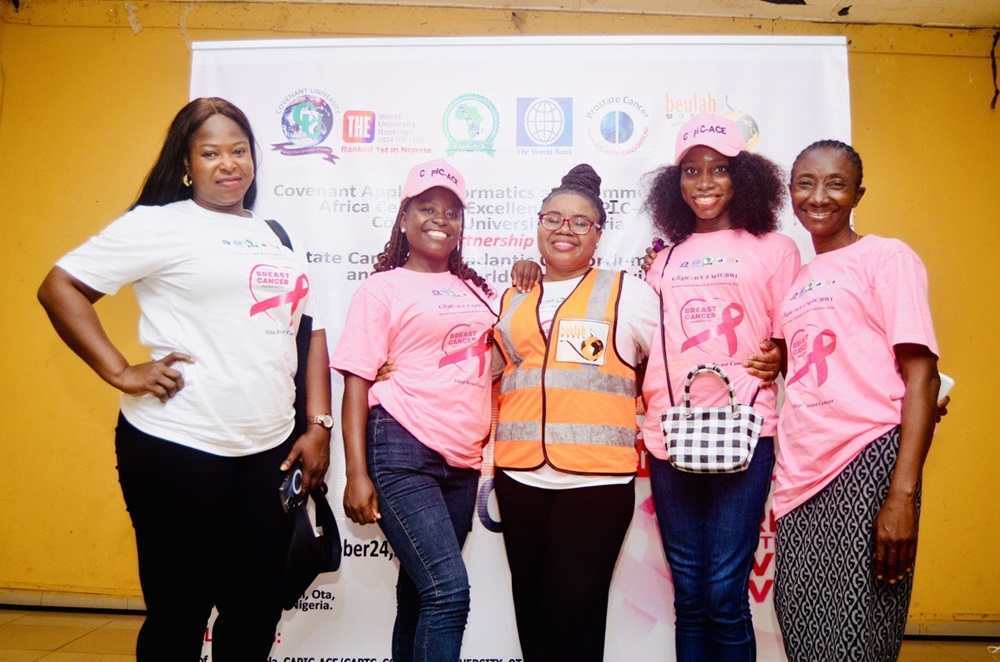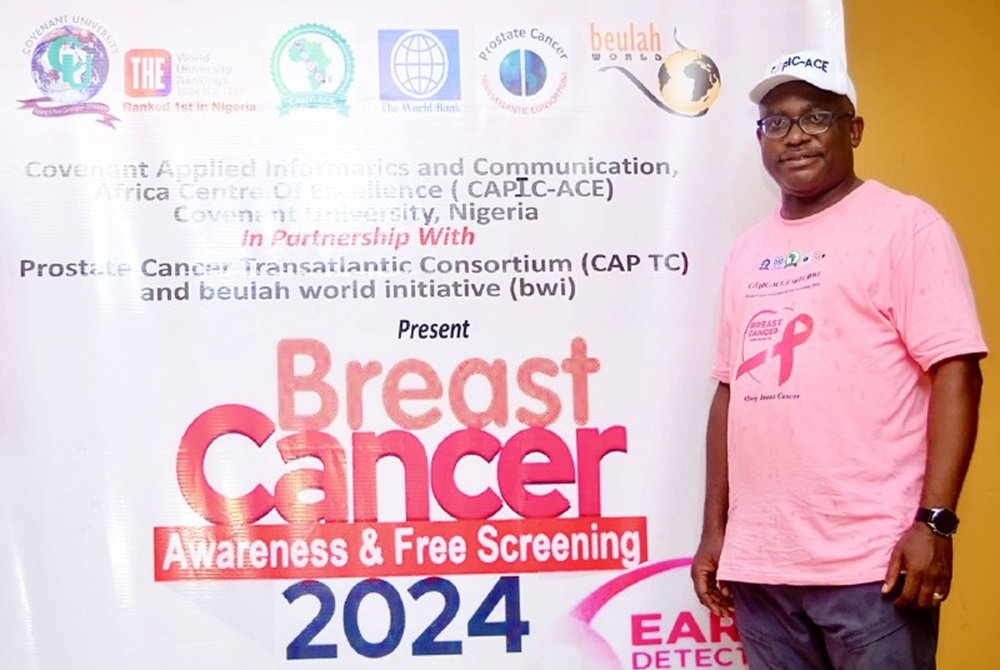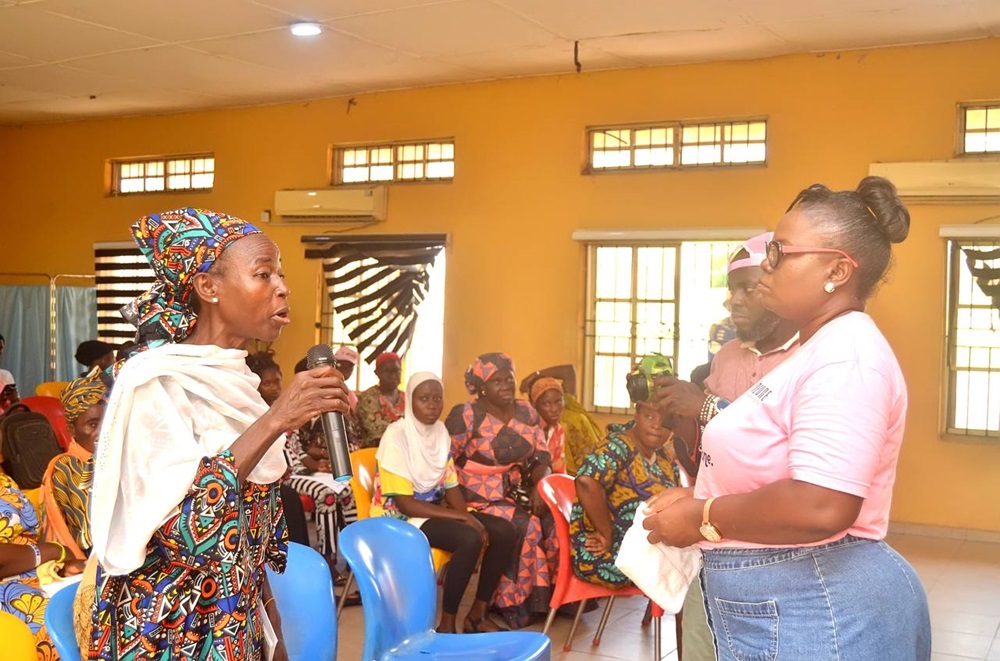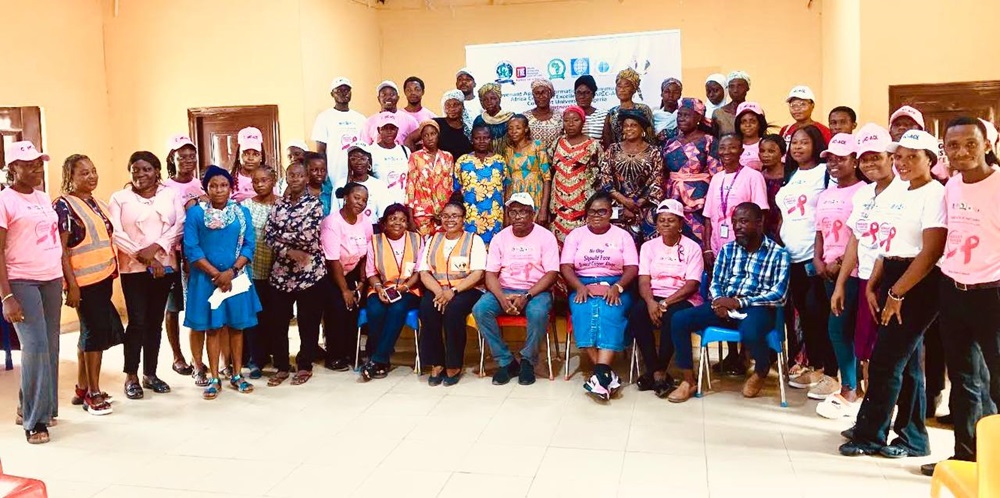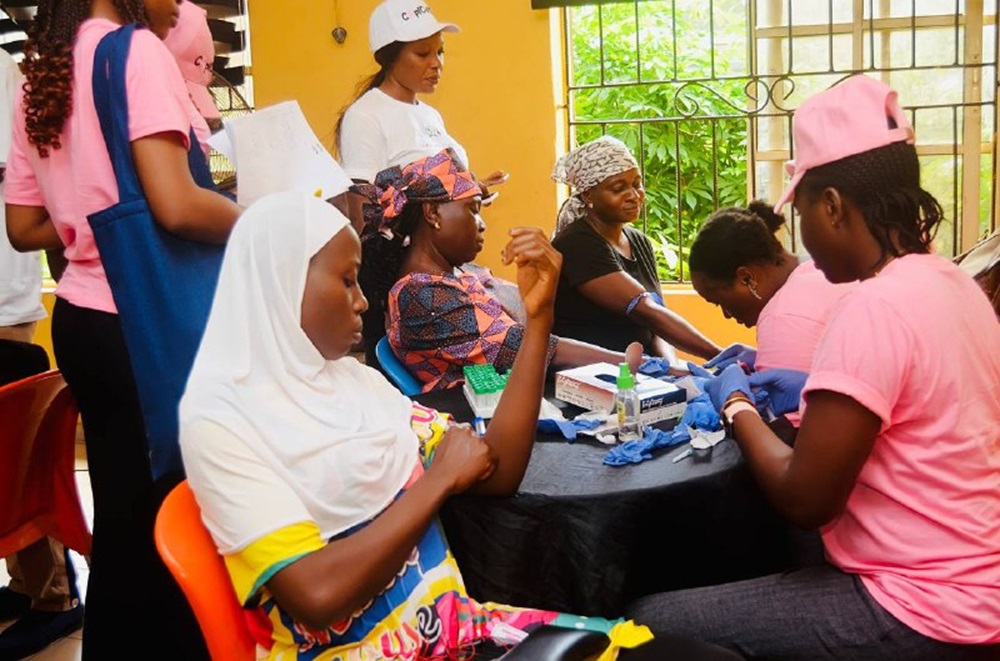Covenant Applied Informatics and Communication Africa Centre of Excellence (CApIC-ACE) hosted by Covenant University, Ota, Ogun State has partnered with Beulah World Initiative and Prostrate Cancer Transatlantic Consortium (CApTC) on Breast Cancer awareness and free screening for Ota Community in Ogun State, with the theme, ‘Early Detection Saves Lives!’
Speaking at the programme on Thursday, the Centre Leader Professor Emeka Iweala, said CApIC-ACE hosted by Covenant University is a multidisciplinary research group funded under the ACE IMPACT project. CApIC-ACE was established to train African scientists to drive research, to reduce the burden of breast and prostate cancer.
He added that one of the activities at CApIC-ACE is ‘Community Outreaches,’ to disseminate research outputs and create awareness on breast and prostate cancer to reduce its burden.
“Globally, every year, the month of October is observed as Breast Cancer Awareness Month to raise awareness of breast cancer and reaffirm our resolve to defeat it. We also encourage understanding of the most common risk factors, treatment, and prevention of breast cancer.”
“By working to raise awareness of breast cancer, we can help women make more informed decisions about their health, including choices which may help prevent breast cancer. I encourage all women and men, especially those at higher risk, to speak with a health care professional to learn how breast cancer could affect them,” he said.
Professor Iweala stated further that the awareness and screening in the Ota community affirms the center’s commitment to ensuring that Nigerians in communities have adequate knowledge about breast cancer and know their status to enable them to prevent it or access proper treatment to save their lives.
“Together, we will work to provide relevant information and support to deal with the disease and look toward a future free from the scourge of breast cancer. We will also continue to support groundbreaking research to better understand breast cancer, especially how best to treat each patient,” he added.
Enlightening participants at the programme, the guest speaker and a Clinical and Radiation Oncologist at LUTH Cancer Center, Dr. Adewunmi Alabi, gave insight into what they need to know about cancer.
She explained that Breast cancer is the most common form of cancer, that affects women all over the world, including Nigeria. “Individuals at the greatest risk for breast cancer include Nigerian women over the age of 40, and women with family histories of breast or other cancers.
Alabi added that while some signs may indicate the presence of breast cancer, many women never experience any symptoms. Screening for breast cancer may find cancer early so that affected women can begin treatment before it spreads.
She therefore encouraged all women aged 40 and above to visit the Doctors about screening options and if they notice any sign in their body. “Breast cancer is treatable, and early detection can help save lives. Knowledge and early detection through screening are the keys to living breast cancer free.”
On the negative thoughts among Nigerians against vaccines, tests and screening, Dr. Alabi said it is because Nigeria is among the low-income countries where knowledge gap is quite on the high side. “If you look at what our theme for the world cancer day for this year is talking about closing the care gap. Some of this care gap even has to do with knowledge, attitude, and practices of our people,” she said.
“My advice to Nigerians is to change their attitude to intake of vaccines, drugs and screening of diseases. So, if the health authorities like WHO certify a drug, there should be no need to doubt that the drug will cause any harm to the populace or a particular gender but rather it’s for a good cause. People are dying every day because of cancer, so when we have things being put to us to use, we need to embrace it and use it, so that we can have a healthy society free of cancer,” she said.
Founder and Coordinator, Beulah World Initiative (BWI), Chichi Ononiwu, explained that BWI is a non-governmental organization that seeks to improve the quality of life of rural and sub-urban dwellers in Nigeria, and by extension, sub-Saharan Africa, and one of the basic ways they do this, is by holding medical outreaches, and the most basic is in the area of primary healthcare.
Ononiwu, who disclosed that the BWI Outreaches have been going on for 16 years said they have been to over 110 communities in Nigeria, especially, Lagos, Ogun, Osun, Edo State, and environs adding that they hope to do more.
On collaboration with CApiC-ACE on the Breast Cancer awareness and screening, she said BWI is partnering with them to look at providing awareness for basic cancers.
“We’ve done that of Prostate last month, and October is World Breast Cancer Awareness Month and so to mark that, we bring awareness to women and also help them with screening because with the state of the economy, screening is usually the last thing on the table for average folks in Sub-Saharan Africa. And because we know that early detection saves lives, the outreach is to aid early detection for people who may already be suffering from cancer.
The BWI Founder who also gave people at the programme a message of hope, said there is strong correlation between religious beliefs and healing.
“There are researches that have been carried out concerning the relationship between religion health and healing that have shown that people who believe in someone or something higher than them, overcome challenges more easily than those who claim that they don’t believe.
“So faith has been proven even via research to have aided the recovery of most cancer patients; because it keeps them bubbling. Just like I quoted in that scripture, ‘sadness dries the bone.’
“Focusing on your problem dries you up, demotivates you from wanting to live. But once you can remove your focus and put it in someone stronger than you, suddenly you find strength to overcome, whatever the situation may be, even cancer, because people equate cancer to death and lack of hope kills faster than cancer,” she stated.
In his presentation, a representative of FEDGEN research group of CApIC-ACE, Mr. Uche, introduced the CApIC-ACE FEDGEN PHIS (Public Health Information System), a platform designed to enhance public health literacy, particularly in the areas of breast and prostate cancer as well as malaria.
FEDGEN PHIS incorporates both text-to-text and text-to-speech language translation services, making health information accessible to indigenous communities in multiple languages, including English, Yoruba, Igbo, Hausa, French, and Afrikaans.
This approach aims to bridge language barriers and ensure that vital health information reaches diverse populations, empowering them with knowledge for better health outcomes.
